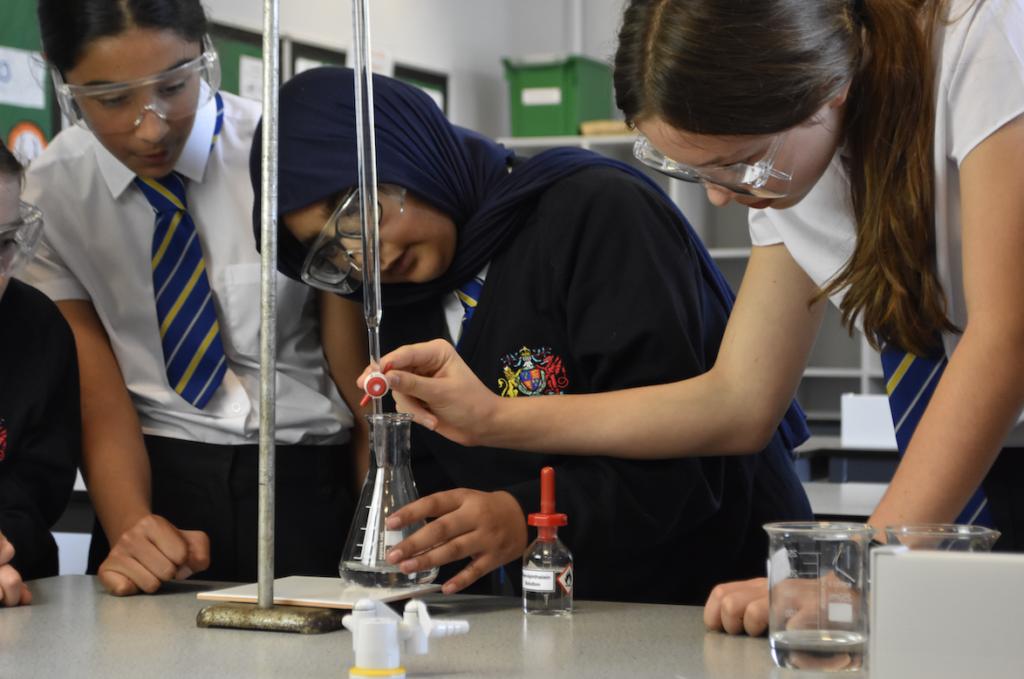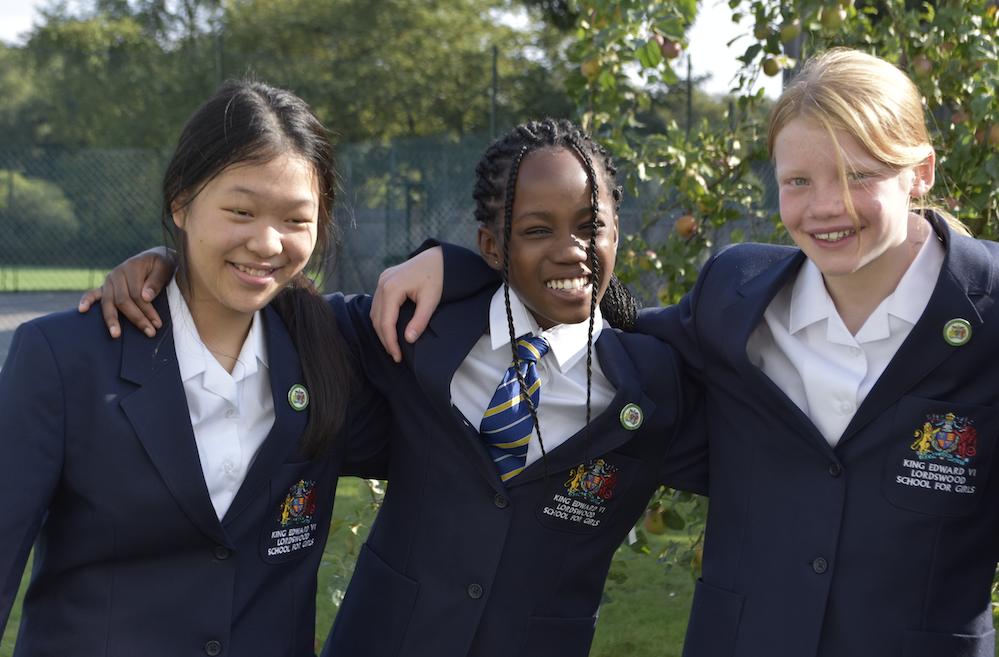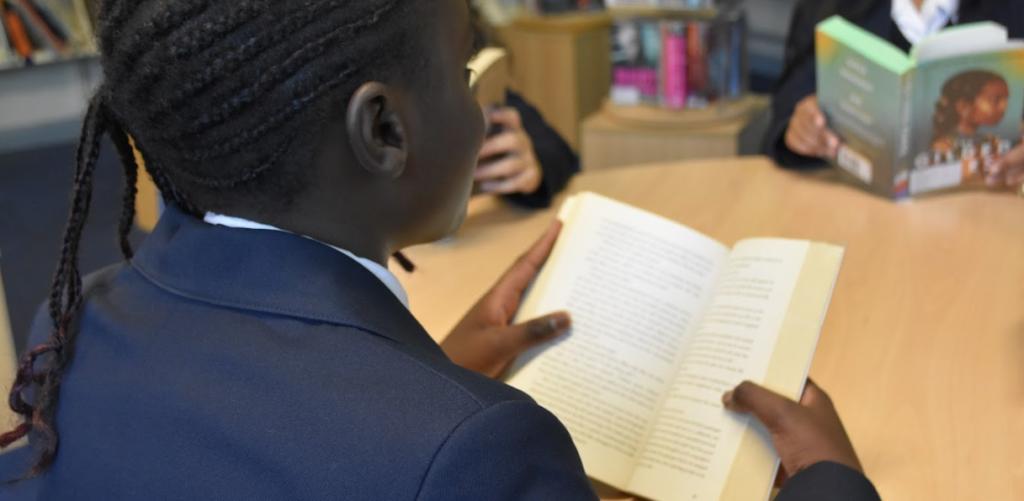Year 7
Students begin their English journey in Year 7 with an exciting and challenging ‘Dystopian Fiction’ scheme of work that allows them to explore what is, for many, a new genre, but builds on the reading and creative writing to which they become so accustomed at KS2. This literary focus becomes more enhanced with a more challenging, in-depth look at a specific author’s craft – Charles Dickens – whereby students explore extracts from Dickens’ ‘A Christmas Carol’, with linked Victorian non-fiction articles dealing with themes of gender equality, poverty, crime and morality. This journey back in time continues as students explore etymology, tracing the origins and evolution of our language – in other words, ‘Where Words Come From’. Year 7 topics also include ‘Don’t Get Me Started’, a scheme designed to introduce students to the art of writing to express a viewpoint effectively, ambitiously and imaginatively, and, in the summer term, introductions to poetry – in its various forms – and Shakespearean drama, with an in-depth study of the Bard’s timeless and enduringly relevant ‘The Merchant of Venice’.
Autumn Term
1: ‘Dystopian Fiction’
An exciting scheme based on reading and creative writing, focused on extracts from dystopian classic such as ‘1984’, ‘Fahrenheit 451’ and ‘Never Let Me Go’. Students also complete a baseline writing assessment.
2:‘The Author’s Craft: Dickens’ ‘A Christmas Carol’’
Extracts from Dickens’ classic novel ‘A Christmas Carol’, with linked Victorian non-fiction articles dealing with themes of education, poverty, class and morality.
Spring Term
1: ‘Etymology: Where Words Come From’
An exploration of the origins and evolution of the English language, showing students how and why words form, exist and change.
2: ‘Don’t Get Me Started’
Students apply their growing confidence and grasp of language to write to express a viewpoint on a range of topics, conveying perspectives in effective, ambitious and imaginative ways.
Summer Term
1: ‘Introduction to Poetry’
An opportunity for students to read, explore and enjoy a range of poetry, discovering different poetic forms and techniques along the way.
2: Shakespeare’s ‘A Midsummer Night’s Dream’’
Students explore the social, cultural and historical context of Shakespeare’s play, before reading and performing the play itself. In so doing, students discover its key ideas, messages and themes – so many of which (love, appearance vs. reality, gender roles, etc.) remain relevant today.
Year 8
Year 8 begins with an opportunity for students to consolidate and develop their understanding and analysis of Shakespeare’s language, structure and ideas, as students read, discover and perform ‘Romeo and Juliet’. An overarching theme of ‘Relationships’, introduced by Shakespeare’s play, continues, with Year 8 students reading poetry inspired by familial and romantic relationships, as well as non-fiction articles exploring some of the issues and ideas conveyed in the poems studied. We also look at the ‘relationship’ between Man and Nature in ‘Us Against the World’, a new scheme of work in which students get the opportunity to explore extracts from classics such as ‘Animal Farm’, ‘Lord of the Flies’, ‘Moby Dick’, ‘The Jungle Book’ and even John Steinbeck’s ‘The Grapes of Wrath’.. Opportunities for creative writing, inspired by the classic texts studied, are then embedded in the Year 8 curriculum, before students end the summer term with an exploration of George Orwell’s seminal and iconic novella ‘Animal Farm’, with all of its messages of social, political and cultural significance, in its entirety.
Autumn Term
1: Shakespeare’s ‘Romeo and Juliet’
Students build on the knowledge and skills acquired in their Shakespearean study at the end of Year 7 by exploring one of the Bard’s most famous plays – not only exploring Shakespeare’s characterisation but his intentions, messages and presentation of themes.
2: ‘Poetry: Relationships’
Father-son relationships, sibling rivalries and mother-child bonds are explored across a range of poetry, drawn from different eras and backgrounds, by renowned poets such as Simon Armitage, Christina Rossetti, Grace Nichols and Carol Ann Duffy.
Spring Term
1: ‘Relationships’: Non-fiction reading and writing
Students read newspaper articles and opinion pieces on the theme of ‘Relationships’, zooming in on evidence to identify writers’ viewpoints: using the same linguistic and structural techniques, students then have the opportunity to create their own pieces of writing.
2: ‘Us Against the World’: Our relationship with the world around us
Using extracts from classic novels such as ‘Animal Farm’, ‘The Jungle Book’, ‘Lord of the Flies’ and ‘Moby Dick’, students explore how authors have, throughout history, portrayed and criticised the impact of humanity on the world – and nature – around us.
Summer Term
1: ‘Us Against the World’: Creative Writing
Inspired by the theme of Man vs. Nature – and humans’ relationship with the world around us – that permeates extracts studied previously, students produce their own creative (descriptive/narrative) writing.
2: Seminal Literature: George Orwell’s ‘Animal Farm’
Students explore the context of George Orwell’s iconic novella, before reading the text and discussing its characters, themes and messages, including such ideas as class, equality and inequality, socialism, and power and control.
Year 9
In Year 9, students continue and develop their understanding of the ways that authors create meaning and structure their texts for effect in the ‘Telling Tales’ scheme of work, whereby we read and explore short stories from various eras and backgrounds, discussing and debating the themes and issues that arise. Just as ‘Relationships’ ties together the work covered in Year 8, so ‘Conflict’ becomes a focus in Year 9, initially with the personal conflicts explored in the ‘Telling Tales’ short story anthology, then with a scheme of work all about First World War poetry. By studying such poems – famous pieces by the likes of Wilfred Owen, Siegfried Sassoon and Rupert Brooke – in Autumn 2, students are able to form a poignant link between this literature and the period of remembrance in November. After Christmas, our attention in Year 9 turns to conflict in writing – writing to argue, to persuade, as well as producing descriptive and narrative pieces with ‘Conflict’ as a central theme – before studying extracts from Shakespeare’s ‘King Lear’ and ‘The Tempest’, specifically focusing on conflict and disagreement between characters. As a transition between KS3 and KS4, Year 9 ends, in the summer term, with an exploration of Gothic literature – including extracts from ‘Frankenstein’, ‘Dracula’ and ‘Jekyll and Hyde’ – and a study of Willy Russell’s ‘Blood Brothers’. In ending KS3 in this way, we introduce students to common themes from 19th century literature and aspects of 20th century modern drama – helping to prepare students for ‘Jane Eyre’ and ‘An Inspector Calls’ respectively, two of our set GCSE texts.
Autumn Term
1: ‘Telling Tales’: Short Stories
We read powerful and thought-provoking short stories, such as ‘Chemistry’ by Graham Swift and Claudette Williams’ ‘Invisible Mass of the Back Row’, discussing how authors use language and structure for effect. Students also explore related non-fiction, dealing with themes discussed in each story, and practise creative writing of their own.
2: Poetry of the First World War
Students research the background of the First World War and explore views expressed by a range of poets of the era, including Jessie Pope, Wilfred Owen and Rupert Brooke. The scheme includes a homework project for which students create war diaries and poems of their own.
Spring Term
1: ‘Conflict in Writing: Argue, Persuade, Describe and Narrate’
Continuing the theme of ‘Conflict’ that permeates throughout Year 9, students read and identify the features of a range of different writing purposes, before creating their own argumentative, persuasive, descriptive and narrative pieces with ‘Conflict’ as a focus.
2: ‘Shakespeare: Studies in Conflict’
We read extracts from ‘Henry V’, ‘King Lear’ and ‘The Tempest’, specifically exploring how Shakespeare presents conflict between characters such as that which exists between Lear and Cordelia and Prospero and Caliban.
Summer Term
1: ‘Horror, Darkness and Mystery: Gothic Literature’
To begin to prepare students for studying ‘Jane Eyre’, we explore extracts from classic Gothic novels such as ‘Frankenstein’, ‘Dracula’ and ‘Jekyll and Hyde’, with students identifying and explaining effects of key Gothic conventions.
2: Modern drama: Willy Russell’s ‘Blood Brothers’
To help to prepare students for the study of another 20th century drama – ‘An Inspector Calls’ – in Year 10, we explore Russell’s classic play, ‘Blood Brothers’. Plot, themes, characters, context and playwright’s message all form the basis of our analysis.
Assessment at Key stage 3
Each half-term, KS3 students will complete:
- One extended piece of independent work – usually an analytical paragraph or brief piece of creative writing, depending on the scheme of work being covered – that teachers will check, having collected in the class set of red books, but not mark in extensive detail. Instead, a whole-class feedback sheet will be completed by the teacher. Students complete the ‘Closing the Gap’ tasks, adapted and tailored for each specific teaching group, in green pen.
- A summative, end-of-topic assessment, which will test students’ ability to recall declarative knowledge – e.g. facts, techniques, etc. – and demonstrate procedural knowledge (e.g. inference, analysis, creative writing). The questions in these assessments will increase in difficulty/challenge, beginning with basic knowledge recall or identifying techniques, developing towards demonstrating perceptive inference of textual detail and culminating in analysis of techniques, evaluation of writers’ intentions or constructing impressive, compelling creative writing. Summative assessments at the end of each unit will be marked in detail by teachers, and two targets will be set. Students respond to marking in green pen, and teachers share, once again, a whole-class feedback sheet – including excellent examples of student work, common misconceptions and closing-the-gap tasks – with students.
How can parents help support their child’s learning?
Encourage your daughter to read independently for pleasure: you may want to read with her, or have regular discussions with her about the texts that she is reading in school.
You could also ask your daughter to check her homework carefully for errors in spelling, punctuation and grammar before she hands it in, encouraging her to read through her sentences carefully to ensure that they are clear and accurate. Reading aloud is sometimes useful in this regard.
Your daughter will probably have regular spelling tests; you could help her to prepare for these by testing her on the spellings that she has to learn. If your child is struggling with a particular English skill or is failing to meet her target level, please encourage her to attend KS3 catch up club on Thursday lunchtimes.
In addition, CGP produce excellent guides to support learning in English at Key Stage 3 – both the CGP English Key Stage 3 ‘The Workbook’ and the CGP Spelling, Punctuation and Grammar ‘The Workbook’ are useful resources – whilst the BBC Bitesize website contains links to useful materials to support KS3 students in their reading and writing.
Enrichment opportunities
At Key Stage 3, we encourage students to participate in the Lordswood Reading Challenge, an extensive reading list that recommends books of varying difficulty levels – with each completed, reviewed and rated book, students accrue points, with rewards and prizes available to high-scorers.
The English department is also heavily involved in collating, editing and publishing the school’s official student magazine, ‘Loudspeaker’. English teachers will regularly encourage students to contribute and submit articles, poems and creative writing for this publication, and, every year, students from Years 7 to 13 take the opportunity to share their creative written expression in this medium.
There is also an English KS3 Club that runs at school every Thursday , where students can read and discuss books, debate controversial topics and develop their creative writing skills.
![]()



